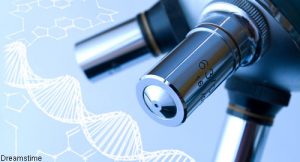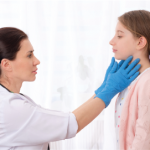 Infections may increase the risk of developing primary Sjögren’s syndrome (pSS), most prominently Sjögren’s syndrome-related antigen A (SSA) and Sjögren’s syndrome-related antigen B (SSB) positive disease, according to new research.1
Infections may increase the risk of developing primary Sjögren’s syndrome (pSS), most prominently Sjögren’s syndrome-related antigen A (SSA) and Sjögren’s syndrome-related antigen B (SSB) positive disease, according to new research.1
Published March 20 in the Journal of Internal Medicine, these findings suggest microbial triggers of immunity may be involved in the pathogenetic process of pSS, says Marie Wahren-Herlenius, MD, the study’s lead investigator and a professor at the Department of Medicine, the Karolinska Institutet at Karolinska University Hospital, Stockholm, Sweden.
“Although we are beginning to understand more of the genetic variants increasing susceptibility in rheumatic diseases, we know very little about the environmental factors that trigger disease in susceptible individuals,” she says. “We do know the immune system, which developed to protect us against infections, is dysregulated in Sjögren’s syndrome and several studies have indicated a role for type I interferon in the pathogenesis of Sjögren’s syndrome.”
The Role of Infection in pSS
Because interferons are typically triggered by infections and because infectious agents may play a role in the development of Sjögrens syndrome, Dr. Wahren-Herlenius and her colleagues hypothesized that a history of infection may increase the risk of developing pSS.
To test this hypothesis clinically, the investigators conducted a present case-control study assessing 945 pSS patients, examining their histories of infection prior to diagnosis using data from the Swedish National Health Register. They also investigated the possible association between infections and pSS based on the route of infection from specific organ systems, including bacterial and viral infections of the respiratory, skin, gastrointestinal and urogenital systems, or on the SSA/SSB autoantibody seropositivity status of pSS patients.
From this analysis, the investigators observed that individuals with a history of infection had a two-fold increased risk of developing pSS. When stratifying for the type of infection and patient antibody status, researchers found respiratory, skin and urogenital tract infections were associated with an approximately three-fold risk of developing pSS with SSA and SSB autoantibodies.
The investigators also observed that a history of multiple infections was associated with a higher risk of developing pSS with SSA and SSB antibodies, suggesting a dose-response relationship between infections and autoantibody-positive pSS, Dr. Wahren-Herlenius says.
The Clinical Connection
Although previous research has uncovered a link between infection and pSS, clinical data demonstrating the connection has been lacking.2–4 This study provides further support for the idea that infection may play a role in a patient developing pSS.
One significant contribution the current study makes to this understanding is the finding that there is a difference between patients who carry autoantibodies and those who do not, Dr. Wahren-Herlenius confirms. “We also found more severe skin infections, such as zoster, staphylococcal scaled skin syndrome, impetigo, cellulitis and acute lymphadenitis, likely present the highest risk for developing pSS, although it is perhaps difficult to draw hard conclusions.”
